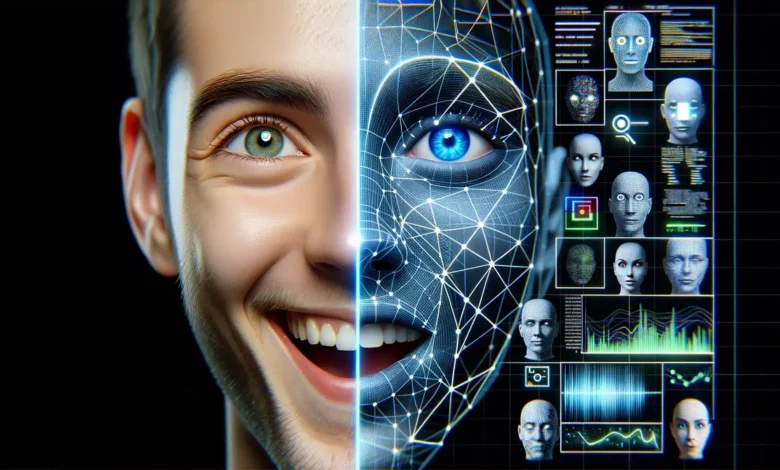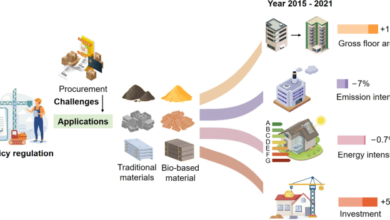ChatGPT Bridging AI and Emotions for a Smarter Future

Artificial Intelligence (AI) is everywhere, from voice assistants to recommendation systems. One AI, in particular, ChatGPT, has garnered significant attention for its remarkable capabilities. But can ChatGPT have emotions? In this blog post, we will explore ChatGPT’s emotional intelligence, its importance, applications, and the future of emotionally intelligent AI.
Understanding ChatGPT and Its Rapid Adoption
ChatGPT is a language model developed by OpenAI that can generate human-like text responses. It has been widely adopted across various sectors, including customer service, education, and content creation. Its ability to understand and respond to natural language has made it a valuable tool for businesses and individuals alike. But one question remains: Can ChatGPT Gratuito understand and convey emotions?
What Is Emotional Intelligence in AI?
Defining Emotional Intelligence
Emotional intelligence (EI) refers to the ability to recognize, understand, and manage one’s own emotions and the emotions of others. In the context of AI, emotional intelligence involves the capability of a machine to perceive, interpret, and respond to human emotions in a way that is contextually appropriate.
Importance of Emotional Intelligence in AI
The importance of emotional intelligence in AI cannot be overstated. It enhances user interactions, making them more natural and engaging. Emotional intelligence allows AI to provide empathetic responses, which can improve customer satisfaction and create more meaningful connections between users and machines.
Applications of Emotional Intelligence in AI
AI with emotional intelligence has a wide range of applications. It can be used in customer service to provide empathetic responses to customer inquiries. In education, emotionally intelligent AI can offer personalized support to students. Additionally, in mental health, AI can provide emotional support and early detection of emotional distress.
How ChatGPT Incorporates Emotional Understanding
Architecture and Design
ChatGPT’s architecture is based on the Transformer model, which allows it to process and generate text. While Chat GPT Deutsch itself does not possess emotions, it has been designed to recognize and respond to emotional cues in text. This is achieved through its training data and the algorithms used to generate responses.
Training Data and Techniques
ChatGPT has been trained on a diverse dataset that includes a wide range of human interactions. This training data encompasses various emotional contexts, enabling ChatGPT to learn how to recognize and respond to different emotions. Techniques such as transfer learning and fine-tuning have been employed to enhance its emotional understanding.
Recognizing and Responding to Emotions
To recognize emotions, ChatGPT analyzes the text for emotional cues such as words, phrases, and sentence structures that indicate a particular emotion. It then generates a response that is contextually appropriate. For example, if a user expresses frustration, ChatGPT can provide a calming and empathetic response.
Case Studies Highlighting ChatGPT’s Emotional Intelligence
Customer Service
In the customer service sector, ChatGPT has been successfully integrated into chatbots to handle customer inquiries. One case study involves a retail company that implemented ChatGPT to manage customer complaints. The AI was able to recognize the emotional state of frustrated customers and respond with empathy, resulting in higher customer satisfaction rates.
Education
In education, ChatGPT has been used as a virtual tutor. A case study at a university demonstrated that students who interacted with ChatGPT received personalized feedback and emotional support. The AI recognized when students were feeling overwhelmed and provided encouragement and guidance, leading to improved academic performance.
Mental Health Support
ChatGPT has also been explored for use in mental health support. A case study involving a mental health app showed that ChatGPT could provide emotional support to users experiencing stress or anxiety. The AI was able to recognize signs of emotional distress and offer comforting and supportive responses, contributing to users’ overall well-being.
The Future of AI with Emotional Intelligence
Advancements in Emotional Intelligence
The field of AI is constantly evolving, and advancements in emotional intelligence are on the horizon. Researchers are working on developing more sophisticated models that can better understand and respond to human emotions. These advancements will enable AI to provide even more personalized and empathetic interactions.
Impact on Society
The integration of emotional intelligence in AI has the potential to significantly impact society. It can improve the quality of customer service, enhance educational experiences, and provide much-needed support in mental health. Additionally, emotionally intelligent AI can foster more meaningful connections between humans and machines, paving the way for a more harmonious coexistence.
Ethical Considerations
As AI becomes more emotionally intelligent, ethical considerations must be addressed. Questions surrounding privacy, consent, and the potential for manipulation arise. It is crucial to establish guidelines and regulations to ensure that emotionally intelligent AI is used responsibly and ethically.
Leveraging ChatGPT for Effective Communication
Personalizing Interactions
To leverage ChatGPT effectively, it is important to personalize interactions. Providing context and background information can help ChatGPT generate more relevant and empathetic responses. For example, mentioning specific details about a customer’s previous interactions can lead to a more personalized and satisfying experience.
Utilizing Tasting Notes
Incorporating tasting notes with each interaction can enhance the user experience. Tasting notes provide additional context and insights into the emotional tone of the conversation. By utilizing tasting notes, users can better understand the nuances of ChatGPT’s responses and create more meaningful interactions.
Exclusive Deals for Subscribers
Subscribers to ChatGPT’s service can benefit from exclusive deals on emotional intelligence features. These features can include advanced emotional recognition capabilities, personalized response generation, and access to ongoing updates and improvements. By taking advantage of these exclusive deals, users can maximize the potential of ChatGPT’s emotional intelligence.
Building a Sense of Community Among AI Enthusiasts
Engaging in Discussions
Engaging in discussions with other AI enthusiasts can foster a sense of community and collaboration. Online forums, social media groups, and industry conferences provide opportunities to share experiences, insights, and best practices. By participating in these discussions, users can stay informed about the latest developments in AI and emotional intelligence.
Sharing Experiences
Sharing experiences and success stories can inspire and motivate others. By showcasing how ChatGPT has positively impacted their interactions, users can demonstrate the value of emotionally intelligent AI. These stories can serve as testimonials and encourage others to explore the potential of ChatGPT.
Collaborating on Projects
Collaborating on AI projects can further enhance the sense of community among AI enthusiasts. By working together on research, development, and implementation of emotionally intelligent AI, users can contribute to the advancement of the field. Collaborative projects can also provide valuable learning opportunities and foster innovation.
Conclusion
In conclusion, ChatGPT’s emotional intelligence represents a significant advancement in the field of AI. By recognizing and responding to human emotions, ChatGPT enhances user interactions, improves customer satisfaction, and provides valuable support in various sectors. The future of emotionally intelligent AI holds great promise, with ongoing advancements and potential societal impacts. Leveraging ChatGPT effectively requires personalization, utilization of tasting notes, and taking advantage of exclusive deals. By building a sense of community among AI enthusiasts, we can collectively explore and maximize the potential of emotionally intelligent AI.





